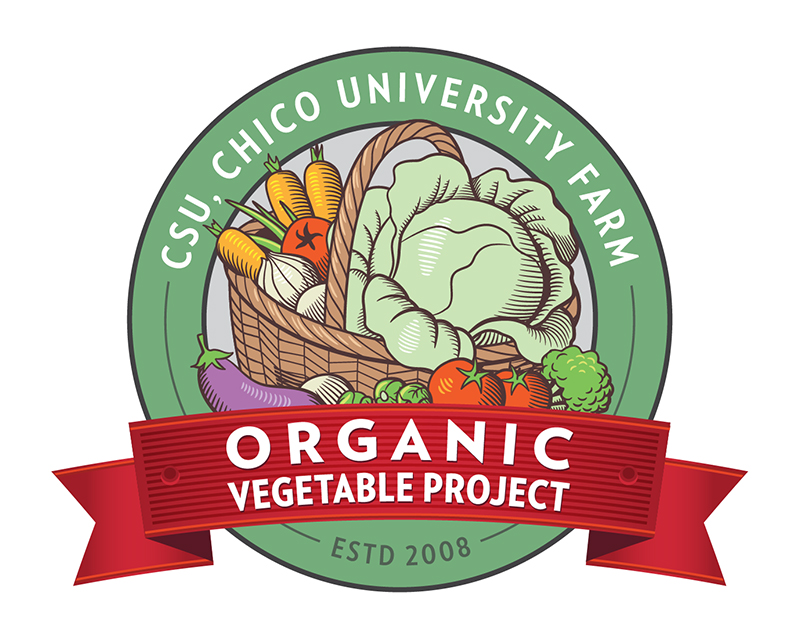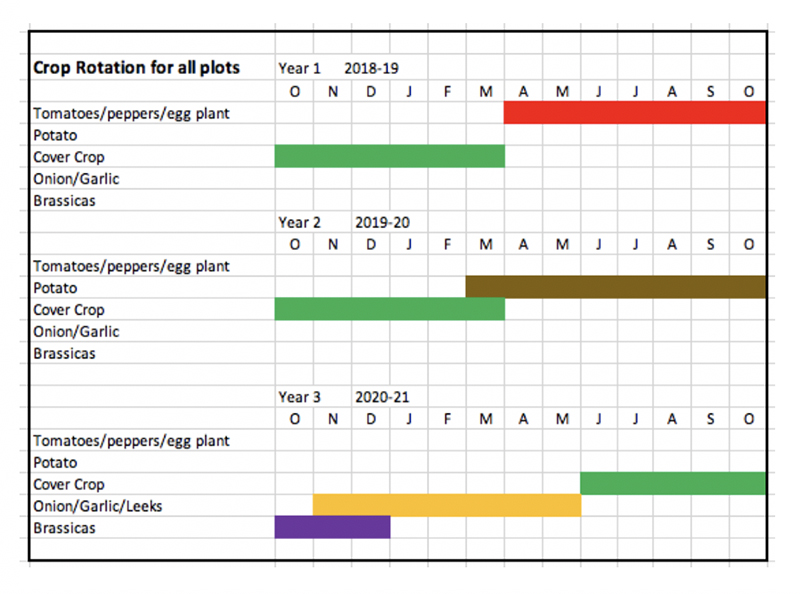
Impact of No-Till Farming Practices on Nutrient Density, Weed Suppression and Cost

CRA has received a grant through the California State Agriculture Institute(opens in new window) (ARI) for a three-year study to investigate the impact of no-till farming practices on soil health, weed suppression, nutrient density and profitability in California organic vegetable production systems. The issue being addressed is the fact that while California organic vegetable production accounts for 64% of total US vegetable crop production valued at over $1.5 billion annually, the practices typically used (for example, extensive tillage) rank among the most detrimental to soil health. Regenerative no-till approaches have been shown to have great benefits for soil health and water retention but weed suppression is still a significant concern for farmers thinking about making changes, and evidence for best practices for profitability (yields versus costs) is still needed. Additionally, research has shown that the nutritional quality of fruit and vegetables has significantly declined in the last 50 years. If no-till practices that increase soil fertility also increase nutrient density that could help create new marketing strategies for regeneratively grown crops. Little research exists in this area so this study provides an opportunity to study that as well.
The study has four objectives:
- To determine the impact of no-till soil management on soil quality by testing for soil organic carbon, soil organic matter, aggregate stability, total carbon, total nitrogen, and vegetable crop yield.
- To determine the difference in effectiveness of using in-situ mulch versus straw mulch for weed suppression in a no-till system.
- To correlate soil health parameters such as soil organic carbon to nutrient density values (vitamins, minerals, antioxidants) in vegetables grown in a no-till vs conventional-till organic system.
- To measure and compare the economic return in no-till vs conventional-till organic vegetable production.
 The project will be conducted at the Organic Vegetable Project (OVP) located at the University Farm. Four replications of three treatments will be applied to a randomized block design (of 4 beds each) including 1) full tillage; 2) no-till treatment with in-situ mulch; and 3) no-till treatment with straw mulch. All treatments will be planted to the same rotation of vegetables and cover crops (see chart). In the full tillage treatment, the cover crop will be mowed and rototilled into the ground, disturbing roots and turning over the soil. Each succeeding crop will be planted into tilled soil and fertilized with recommended rates of compost. In the second treatment, the cover crop will be mulched and left to lay on top of the soil as a weed barrier for transplants. The soil will be undisturbed. In the straw mulch treatments, the cover crop will be terminated by roller/crimper for transplants followed by straw mulch. The soil will be undisturbed. Straw mulch will be placed between the rows and where needed as a weed barrier throughout the crop production cycle. Each succeeding crop will be no-till planted into the residue and fertilized with recommended rates of compost. All seeding rates and transplants will be standardized for each plot. Composting rates will be standardized across all plots as well.
The project will be conducted at the Organic Vegetable Project (OVP) located at the University Farm. Four replications of three treatments will be applied to a randomized block design (of 4 beds each) including 1) full tillage; 2) no-till treatment with in-situ mulch; and 3) no-till treatment with straw mulch. All treatments will be planted to the same rotation of vegetables and cover crops (see chart). In the full tillage treatment, the cover crop will be mowed and rototilled into the ground, disturbing roots and turning over the soil. Each succeeding crop will be planted into tilled soil and fertilized with recommended rates of compost. In the second treatment, the cover crop will be mulched and left to lay on top of the soil as a weed barrier for transplants. The soil will be undisturbed. In the straw mulch treatments, the cover crop will be terminated by roller/crimper for transplants followed by straw mulch. The soil will be undisturbed. Straw mulch will be placed between the rows and where needed as a weed barrier throughout the crop production cycle. Each succeeding crop will be no-till planted into the residue and fertilized with recommended rates of compost. All seeding rates and transplants will be standardized for each plot. Composting rates will be standardized across all plots as well.

We currently have testing capability for: Butternut squash, apples, carrots, spinach, mizuna, sweet peppers, grapes, potatoes, mustard, yellow squash, kale, beets, bok choy, zucchini, lettuce, blueberries, leeks, cherry tomatoes, swiss chard, peaches, pears, nectarine, oats and wheat. Methods are being developed for eggplant.
Vegetable samples are submitted with paired soil samples at both 0-4inches and 4-8inches.
Produce Analysis:
- Moisture content
- Vitamins and Minerals
- Brix
- Antioxidant power
- Polyphenol content
- Full spectrophotometry
Soil Analysis:
- 24hr Respiration
- pH and Electroconductivity
- Total Carbon
- Total Nitrogen
